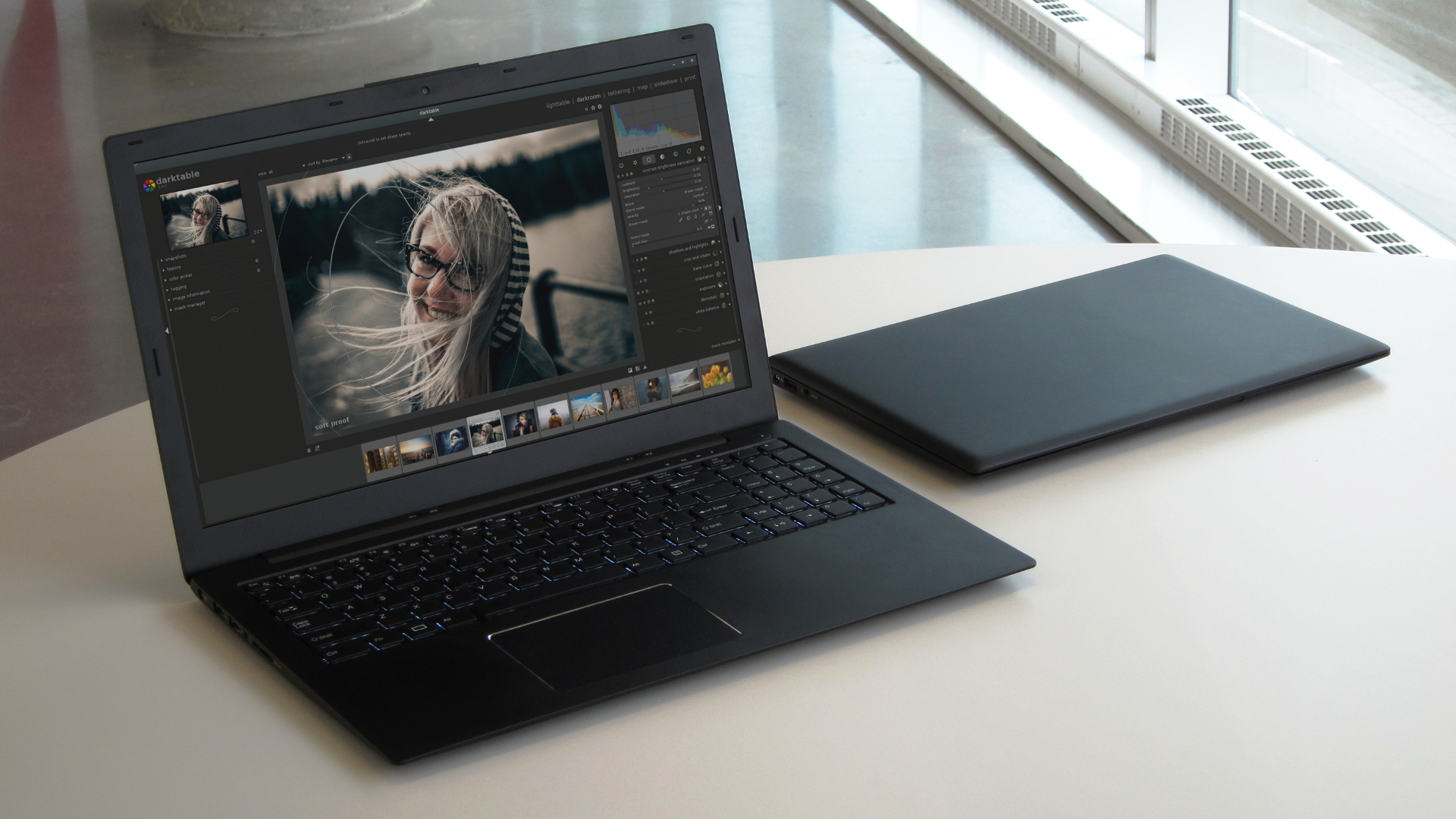TechRadar Verdict
This is a highly compelling notebook which boasts a neat design, impressive attention to detail, and some great security and privacy features.
Pros
- +
Privacy and security features
- +
Competitive performance levels
- +
Free software all the way down the stack
Cons
- -
Not cheap
Why you can trust TechRadar
People who want a laptop pre-installed with GNU/Linux are a niche market (sadly), and people who want that GNU/Linux to be entirely free – no binary blobs in the kernel – are a small percentage of that niche. But people who care about security and privacy? That’s a large and growing number of regular computer users – thanks to Vault 7 and other news about the extent to which we’re all monitored online.
The Purism Librem 15 (and other laptop models) are high-end devices built from the ground up with security and privacy in mind. Worried about someone remotely activating the camera and mic on your child’s laptop? The Librem has hardware kill switches to power off these devices.
We got to spend a couple of days with a Librem 15 – which starts from $1,449 in the US, and £1,110 in the UK, plus 20% customs duty – while members of the Purism team were in the UK for GUADEC. Here’s how we fared with it.
(ed: Librem also does smartphones, one of them is the Librem 5)
Here is the Purism Librem 15 configuration provided to Linux User & Developer for review:
CPU: Intel Core i7-6500U (dual-core, 2.5GHz with boost to 3.1GHz)
Graphics: Intel HD Graphics 520
RAM: 4-16GB
Storage: 120GB-4TB SATA SSD and/or 512MB-2TB NVMe SSD
Display: 15.6-inch Full HD screen
Ports: 3 x USB 3.0 (1 x Type-C), 2 x USB 2.0, 1 x HDMI (4K capable)
Connectivity: Atheros 802.11n Wi-Fi
Dimensions: 375 x 244 x 22mm
Weight: 1.5kg (1.8kg with battery)
Design
First impressions are very good: a lovely slim wedge of black anodised aluminium that opens with good resistance from the hinges. There’s a good collection of ports around the outside, including USB Type-C, but no RJ45 – wired is considered legacy nowadays, and if you need it you’ll have to get a USB adaptor.
The keyboard – despite looking like a flimsy ‘chiclet’ type – is a bit of a surprise. Feedback has a nice feel rare in this type of keyboard, and touch-typing is far easier than on a MacBook Pro, for example. It’s not your ThinkPad mechanical keyboard, but it’s pleasantly tactile with enough travel to make touch-typing feel natural – once the user adjusts to the slightly shorter key travel, everything feels just right.
Typing all day is as it should be – something done without a great deal of conscious thought about the mechanical process. The space bar even has a pleasant amount of mechanical noise, so the feel of an old-school keyboard is not entirely lost. These are not trivial matters to anyone who spends eight or more hours typing and rarely uses a mouse.
As far as the touchpad goes, some of us will never be fans of such pointing devices, but for its kind it’s at the relatively painless end of the spectrum – with multi-touch working well for scrolling, swiping and, where supported by apps, pinch zoom/rotate. At least it comes with middle-click, and the whole thing can be turned off simply via Fn+F1, for avoiding accidentally moving your cursor position during extended typing sessions.

Function keys also control the usual shortcuts to sleep (which also works with the lid closed, as it should), mute, adjust screen brightness, wireless and such. What marks the Librem laptops out is the presence of hardware kill switches (HKS).
Camera and microphone, as well as Wi-Fi, are all controlled by HKS – slide the switch and you cut the power, giving the Librem user protection from any software switching on the microphone, camera or Wi-Fi, whether for corporate data gathering, government surveillance or more personally malicious purposes. Little wonder many people are choosing to buy these devices for their children.
Evolutionary improvements over earlier models are certainly noticeable given that we couldn’t find any of the problems mentioned in older reviews during our brief time with the laptop. Construction quality is good, and the access to memory and storage via Phillips screws is welcome. You can also buy the Librems without any storage, and put in your own. There are some replaceable parts – Purism is gradually building up inventory.
- Check out our in-depth interview with the CEO of Purism, Todd Weaver
Performance
The dual-core Skylake Intel Core i7 is fast enough, but more cores would be nice since compilers and other apps take advantage of them. Performance is certainly on a par with rivals, and battery life is decent but not the best – no surprise given the slim form factor, and large and lovely screen. We experienced about six hours of real-world use, although you could stretch it out towards the claimed '6 to 9 hours' scale with a dimmer screen.
If GNOME 3 isn’t your current desktop of choice, PureOS could be a pleasant surprise. Every recent GNOME release has added polish, as well as security improvements (such as Flatpak), and with PureOS being all about both security and convenience, it does deliver one of the best out-of-the-box GNOME experiences. If you do purchase this notebook in the UK, don’t forget as we mentioned before, there’s a 20% duty charge to take into account.
- We've picked out the best Linux laptops of 2017
Final verdict
If you’re in the market for a high-end laptop that will last, Purism’s engineering excellence and attention to detail will put this on your shortlist. If you want a user-friendly desktop on a system that has real credibility when it comes to digital rights, this should be at the top of your list.
This review was first published in issue 183 of Linux User & Developer

